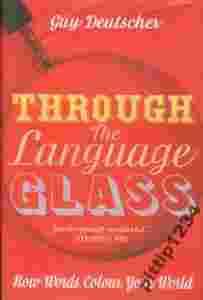|
A nation's language, or so we are often told, reflects its culture, psyche and modes of
thought. Some languages don't have a future tense, so naturally their speakers have no grasp
of the future. The Babylonians would have been hard pressed to understand Crime and
Punishment because their language used the same word to describe both these concepts. German
is a model of logical organisation, which is why the Germans have such an orderly mind;
English is an adaptable, even promiscuous language; and Italian - ah, Italian!
Many a dinner conversation is animated by such vignettes, and yet, pour a few cold facts
over such observations, and they soon collapse like a souffle of airy anecdote - at best
amusing and meaningless, at worst bigoted and absurd. So once one has sifted out the
unfounded and the uninformed, the farcical and the fantastic, is there anything sensible
left to be said about the relation between language, culture and thought? Does language
reflect the culture of a society in any profound sense, beyond such trivia as the number of
words it has for snow or for shearing camels? Is our mother-tongue a lens through which we
perceive the world? Can different languages lead their speakers to different thoughts? Could
our experience of a Chagall painting depend on whether our language has a word for 'blue'?
In Through the Language Glass, acclaimed author Guy Deutscher will convince you that,
contrary to the fashionable consensus of today, the answer to all these questions is - yes.
On an odyssey that takes us from Homer to Darwin, from scientists to savages, from the
corridors of Yale to the rivers of the Amazon, from how to name the rainbow to why Russian
water - a 'she' - becomes a 'he' once you have dipped a tea bag into her, this book explores
some of the most fascinating and controversial questions about language, culture and the
human mind.
|

